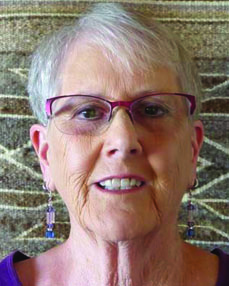By Jeanette Arnquist
 Suppose you are at home with four children, aged six to 10 years old in the back yard. It is a safe place with no real hazards. They are playing well and enjoying being together.
Suppose you are at home with four children, aged six to 10 years old in the back yard. It is a safe place with no real hazards. They are playing well and enjoying being together.
Your phone rings. It is an important call that you have been waiting for. You need to take the call in your office where you have access to your files and computer. After a few minutes you return to the yard to find three children running around and laughing and having a great time, and one child on the ground injured, wailing and sobbing, obviously not part of the fun.
What do you do?
Of course your sense of compassion draws immediately to the crying child. You will find out how you can make it better. You make every effort to heal the injury. You get help if it is needed. You will do your best to make sure this doesn’t happen again. In this moment you don’t treat all the children the same. You choose to give your attention to the injured one.
This is what God does, too. God chooses the poor.
When the People of Israel were held captive in Egypt, God intervened to free them and lead them to a new life.
When Jesus was born in Bethlehem, he was born poor among the poor. Let us not forget this as we celebrate Christmas this year. The images we see in Christian art and on contemporary Christmas cards romanticize (or ignore) the reality. In reality, no one wore golden haloes. The stable stunk. The shepherds didn’t get a chance to shower before they came. Mary and Joseph were living so close to the edge that they had to camp out in a stable and later become (unauthorized) refugees in Egypt.
It is easy to follow the example of the Magi and worship the child laid in a manger. It is harder to follow the adult prophet this child became, the prophet who was eventually crucified and rose from the dead. Following Christ involves more than worshiping him at his birth. In his “final exam,” chapter 25 of Matthew’s Gospel, Jesus tells us that the way we treat the hungry, thirsty, the imprisoned and the stranger, is the way we treat him. “As often as you did it to the least of these, you did it to me.” Following Christ calls us to make the option for the poor.
The option for the poor has implications on how individuals share their resources with the poor and also on how society treats those on welfare, those needing nutritional assistance, and those fleeing violence in their home countries, to mention just a few issues. Let us remember “The needs of the poor take priority over the desires of the rich; the rights of workers over the maximization of profits; the preservation of the environment over uncontrolled industrial expansion; the production to meet social needs over production for military purposes.” (United States Conference of Catholic Bishops, Economic Justice for All, no. 94
Jeanette Arnquist is a former Director of the Department of Life, Dignity & Justice for the Diocese of San Bernardino. She is retired and living in Tuscon, Arizona where she remains active in social concerns ministries.